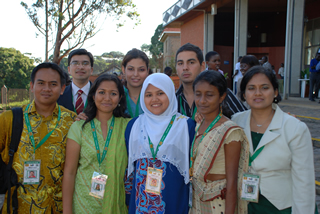Pluralism and Diversity
A dictionary definition of pluralism is:
Pluralism: a state of society in which members of diverse ethnic, racial, religious, or social groups maintain an autonomous participation in and development of their traditional culture or special interest, within the confines of a common civilisation.
In a pluralist society, no one group or characteristic totally dominates social organisation because all groups have to act as if they value and accept diversity. In other words, pluralism guards against totalitarianism and 
The majority of Commonwealth countries are plural societies, where different ethnic, racial, cultural and religious groups live peacefully together. Recent examples of ethnic cleansing in countries like Bosnia or Rwanda are examples of anti-pluralism or the complete breakdown of pluralism. The Rwandan genocide was tribal in nature, but its roots derived from the colonisation processes in the country which used a smaller tribe to manage a much larger tribe in the control of the country.